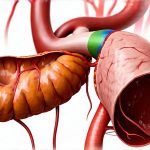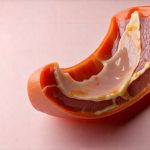Persistent nausea after every meal is significantly more than just a temporary discomfort; it’s a signal from your body that something isn’t right. While occasional nausea related to food poisoning or a viral infection is expected and usually resolves quickly, consistent post-meal nausea warrants investigation. It disrupts daily life, impacts nutritional intake, and can be incredibly distressing. Ignoring this symptom doesn’t make it disappear; in fact, prolonged untreated nausea could point to underlying medical conditions that require proper diagnosis and management. The goal isn’t simply suppressing the feeling but understanding its root cause.
This article aims to provide a comprehensive overview of potential reasons for persistent post-meal nausea and practical steps you can take to understand what might be happening and how to approach it. We’ll explore common causes, from dietary factors and lifestyle choices to more complex medical possibilities. Importantly, we will focus on self-assessment and when seeking professional medical attention is critical – this information should not substitute for a consultation with a qualified healthcare provider. Remember that pinpointing the cause of chronic nausea often requires a collaborative approach between you and your doctor.
Understanding Potential Causes
Nausea after eating isn’t always about the food itself, although dietary factors are frequently involved. The digestive system is an incredibly complex process, and disruptions can occur at any stage – from chewing to absorption. One common culprit is food intolerance or sensitivity. These differ from allergies in that they typically don’t involve an immune response but rather a difficulty digesting specific components of food. Lactose intolerance, for instance, often leads to bloating, gas, and nausea after consuming dairy products. Similarly, sensitivities to gluten, fructose, or certain additives can trigger digestive distress. However, the causes are far more diverse than just intolerances.
Beyond dietary issues, conditions affecting the gastrointestinal tract itself play a significant role. These include gastritis (inflammation of the stomach lining), peptic ulcers, and gastroparesis – a condition where the stomach empties too slowly. Problems with the gallbladder or pancreas can also lead to post-meal nausea as these organs are crucial for digestion. Furthermore, neurological conditions, medication side effects, and even psychological factors like anxiety can contribute to this symptom. It’s essential to remember that the body is interconnected; what seems like a digestive issue could stem from an entirely different system.
Finally, consider lifestyle elements. Eating too quickly, consuming large portions, or eating highly fatty foods can all overwhelm the digestive system and induce nausea. Stress, dehydration, and lack of sleep also significantly impact digestion and overall well-being. Often, identifying the cause is a process of elimination – carefully examining your diet, lifestyle habits, and any other symptoms you’re experiencing. If symptoms come back months later, it’s worth reevaluating potential causes.
Dietary Adjustments & Food Diary Keeping
The first step in addressing persistent post-meal nausea often involves making mindful dietary changes. This doesn’t necessarily mean drastic restrictions but rather a thoughtful evaluation of what you’re consuming. Start by eliminating highly processed foods, excessive sugar, and overly fatty meals. These can be harder to digest and more likely to trigger symptoms. Focus on incorporating easily digestible foods like bland carbohydrates (toast, rice, bananas), lean proteins, and cooked vegetables. Small, frequent meals are generally better tolerated than large portions. If you experience a reflux flare-up after eating, consider dietary changes that can soothe your system.
A crucial tool in identifying dietary triggers is a detailed food diary. This isn’t just about listing what you eat; it’s about recording everything – the time of day, specific ingredients, portion sizes, how you felt before and after eating, and any accompanying symptoms. Be incredibly precise. After a week or two, review your diary to identify patterns. Did nausea consistently occur after consuming a particular food? Does it seem related to the timing of meals? This information will be invaluable when discussing concerns with your doctor.
Consider an elimination diet under the guidance of a healthcare professional if you suspect a food intolerance. This involves temporarily removing suspected trigger foods and then reintroducing them one at a time to observe any reactions. However, self-treating without proper monitoring can lead to nutritional deficiencies, so professional guidance is vital. Hydration is also key; drink plenty of water throughout the day, especially before, during, and after meals. If you react to supplements, consider reviewing ingredients with your doctor.
The Role of Lifestyle & Stress Management
Beyond diet, lifestyle factors significantly impact digestive health and nausea. Stress is a major contributor. When you’re stressed, your body releases hormones that can disrupt digestion, leading to nausea, stomach upset, and altered bowel habits. Incorporate stress-reducing techniques into your daily routine, such as meditation, yoga, deep breathing exercises, or spending time in nature. Even short periods of relaxation can make a difference.
Regular physical activity promotes healthy digestion and reduces stress levels. Aim for at least 30 minutes of moderate-intensity exercise most days of the week. However, avoid strenuous exercise immediately after eating, as this can exacerbate nausea. Adequate sleep is also crucial. When you’re sleep-deprived, your body’s systems are compromised, including digestion. Prioritize getting 7-8 hours of quality sleep each night.
Eating habits themselves matter too. Avoid eating too quickly – take your time and chew your food thoroughly. This aids digestion and prevents overeating. Sitting upright after meals can also help prevent acid reflux, which can contribute to nausea. Finally, limit alcohol consumption and avoid smoking, as these habits can irritate the digestive system. If you’re feeling bloated after every meal, adjust portion sizes or eating habits.
When To Seek Medical Attention
While many cases of post-meal nausea can be managed with lifestyle changes and dietary adjustments, it’s crucial to recognize when professional medical attention is needed. Don’t delay seeing a doctor if your nausea is severe, persistent (lasting more than a few weeks), or accompanied by other concerning symptoms. These include:
- Unintentional weight loss
- Difficulty swallowing
- Persistent vomiting
- Blood in your vomit or stool
- Severe abdominal pain
- Fever
- Dehydration (dizziness, dark urine)
Your doctor will likely start with a thorough medical history and physical examination. They may order various tests to determine the underlying cause of your nausea. These could include blood tests, stool tests, endoscopy (a procedure to examine the esophagus and stomach), or imaging scans like an ultrasound or CT scan. If your colonoscopy finds something unusual, prompt follow-up is essential.
It’s vital not to self-diagnose. Persistent nausea can be a symptom of serious medical conditions that require prompt treatment. A healthcare professional is best equipped to accurately diagnose the cause and recommend appropriate management strategies. Do not hesitate to seek help; early intervention often leads to better outcomes. Remember, this information provides guidance but should never replace professional medical advice. If you experience gut symptoms after antibiotic-related treatment, it’s important to understand potential causes with your doctor.


















